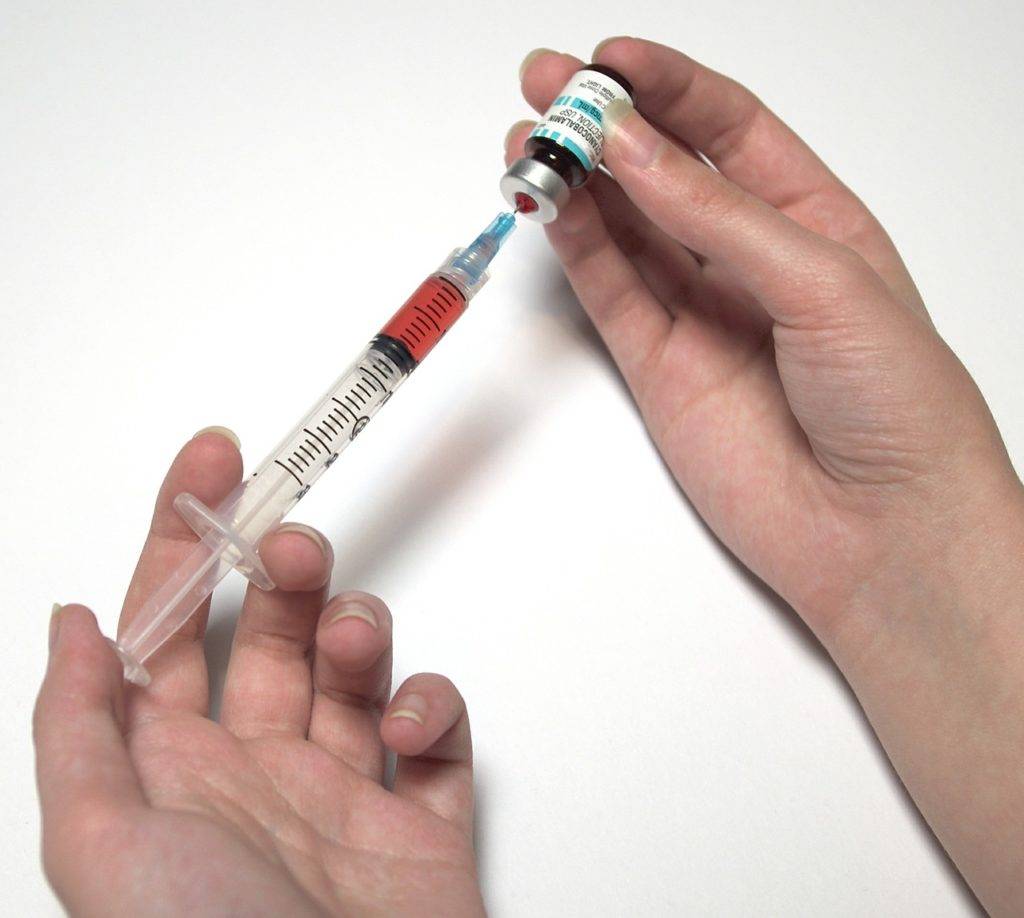Public health efforts have made significant strides in vaccination. Through vaccination programs, it has saved countless lives from debilitating and often fatal diseases. The MMR vaccine is worth noting because of its impact on public health.
The Measles, Mumps, and Rubella (MMR) vaccine has been a cornerstone of public health efforts to control and eradicate these three potentially serious viral diseases. However, its success, efficacy, and safety are riddled with varied, unfounded misconceptions.
Addressing and debunking these myths with evidence-based information ensures that individuals will make informed decisions about vaccination, contributing to protecting public health and safety.
Misconception 1: The MMR Vaccine Causes Autism

This is the most pervasive and damaging myth. This misconception stems from a 1998 study by Andrew Wakefield, which has since been thoroughly discredited and retracted. The study linked the MMR vaccine and autism, causing widespread panic and a significant drop in vaccination rates.
Hundreds of thousands of children have participated in numerous extensive studies since Wakefield’s publication. None of the studies show any evidence linking the MMR vaccine to autism.
The Centers for Disease Control and Prevention (CDC), the World Health Organization (WHO), and the American Academy of Pediatrics (AAP) have all confirmed their safety. Wakefield’s research was found to be fraudulent, and he lost his medical license as a result.
Misconception 2: Natural Immunity is Better Than Vaccine-Induced Immunity
Another common belief is that natural infection provides better immunity than vaccination. While it’s true that surviving a natural infection leads to immunity, this comes with significant risks. Measles, mumps, and rubella cause severe complications, including encephalitis (brain inflammation), pneumonia, deafness, and even death.
The MMR vaccine provides immunity without exposing individuals to these potentially severe health risks. Vaccination stimulates the immune system in a controlled way, allowing it to build immunity without the danger of disease.
The MMR vaccination has a 97% measles prevention rate and 88% for mumps. Compared to the dangers of the diseases it protects, the risks are negligible.
Misconception 3: The MMR Vaccine Contains Harmful Ingredients
Concerns about vaccine ingredients are another reason some people avoid the MMR vaccine. Many people worry that it includes preservatives, adjuvants, and other additives. The MMR vaccine doesn’t contain preservatives like thimerosal, which some falsely believe to be linked to autism. It also has no aluminum or mercury.
Rigorous testing for safety and efficacy has been done on the vaccine. Weakened measles, mumps, and rubella viruses comprise the vaccine, which stimulates the immune system without causing the disease. Other ingredients are stabilizers like sorbitol and gelatin, which help maintain the vaccine’s effectiveness during storage and transport.
Misconception 4: The MMR Vaccine is Only for Children
While the MMR vaccine is primarily administered to children as part of routine immunization schedules, it’s also important for adults for certain reasons. These reasons include no vaccine shots during childhood, not receiving the appropriate doses or a higher risk of exposure to these diseases.
For example, adults who work in healthcare settings, travel internationally, or attend college are recommended to receive the MMR vaccine if their vaccination status is not updated. Also, women of childbearing age who don’t have immunity to rubella should receive the vaccine to prevent congenital rubella syndrome in future pregnancies.
Misconception 5: The MMR Vaccine isn’t Necessary Since These Diseases Are Rare
Some people believe that since measles, mumps, and rubella are now rare, there’s no need to vaccinate. This misconception ignores herd immunity, which depends on a high percentage of the population being vaccinated to prevent outbreaks.
Countries with decreasing vaccination rates experience measles outbreaks. This happens since the measles, mumps, and rubella viruses can quickly resurface when vaccination rates drop.
Measles is highly contagious. Before its introduction to the market, the disease caused countless deaths worldwide each year. Even with modern medical care, measles leads to severe complications and death.
Misconception 6: The MMR Vaccine Causes Serious Side Effects
All medical interventions have side effects, but the serious side effects of the MMR vaccine are rare, like fewer than one in a million doses. The mild side effects are fever or rash, while the serious ones are severe allergic reactions. The associated risks of the diseases that the MMR vaccine prevents far outweigh the risks of vaccination.
Measles can lead to pneumonia, encephalitis, and death. Mumps leads to meningitis, encephalitis, and permanent hearing loss. Rubella is critical for pregnant women since it may lead to congenital rubella syndrome, leading to severe birth defects or miscarriages.
Misconception 7: The MMR Vaccine Overloads the Immune System
Some parents worry that giving multiple vaccines at once, such as the combined MMR vaccine, can overload a child’s immune system. This concern is unfounded. The immune system is constantly exposed to antigens from the environment every day. The number of antigens in vaccines is minuscule in comparison.
Research has shown that administering multiple vaccines simultaneously is safe and effective. Combining vaccines like the MMR vaccine reduces the number of injections a child needs, which can be less traumatic and more convenient for both the child and the parents.
Misconception 8: Vaccines Are Just for Profit
A common argument among vaccine skeptics is that vaccines, including the MMR vaccine, are promoted primarily for profit by pharmaceutical companies. This misconception ignores the extensive research, development, and regulatory processes in bringing a vaccine to market.
Vaccines undergo rigorous testing in multiple phases of clinical trials to ensure their safety and efficacy. Regulatory agencies, such as the US Food and Drug Administration (FDA), closely monitor these processes and evaluate the evidence before approving any vaccine.
Public health organizations, not pharmaceutical companies, set vaccination policies based on the best available scientific evidence.
Misconception 9: The MMR Vaccine is Not Effective
This misconception arises when people hear about outbreaks of these diseases, sometimes involving vaccinated individuals. While no vaccine is 100% effective, the MMR vaccine significantly reduces the risk of these diseases. Most individuals contracting measles, mumps, or rubella during an outbreak are unvaccinated.
However, vaccinated individuals can contract these diseases, but they typically experience milder symptoms and fewer complications. The effectiveness of the MMR vaccine has been well-documented through numerous studies and real-world evidence, showing that it’s highly effective in preventing these diseases.
Misconception 10: Measles, Mumps, and Rubella Are Mild Diseases
Some individuals downplay the severity of measles, mumps, and rubella, believing them to be mild illnesses. This misconception is dangerous as it underestimates the potential complications associated with these diseases.
Measles can cause severe respiratory issues, encephalitis, and death. Mumps can lead to meningitis, encephalitis, orchitis (inflammation of the testicles), and hearing loss. Rubella is usually mild in children but can cause serious birth defects if contracted by pregnant women.
Before widespread vaccination, these diseases caused significant morbidity and mortality. The reduction in cases directly results from successful vaccination programs, but this success should not lead to complacency.
Misconception 11: The MMR Vaccine is a Government or Pharmaceutical Conspiracy
Some people believe that vaccines, including the MMR vaccine, are part of a government or pharmaceutical conspiracy to control the population or generate profit. This conspiracy theory lacks evidence and undermines public trust in health authorities.
Vaccines undergo rigorous testing and meet safety and efficacy standards before they’re released to the trade. The benefits of vaccination in preventing disease and saving lives are well-documented.
Public health policies promoting vaccination are based on extensive scientific research to protect individuals and communities from preventable diseases.
Trust Science, not Myths, about the MMR Vaccine

Vaccination isn’t just a personal choice but a collective responsibility. The more vaccinated individuals are, the better protected we all are, especially the most vulnerable members of our communities. The MMR vaccine is a critical tool in the fight against measles, mumps, and rubella. Despite its proven safety and efficacy, misconceptions persist.
These myths can lead to vaccine hesitancy, resulting in outbreaks of preventable diseases and putting vulnerable populations at risk. It’s crucial to address these misconceptions with accurate information and to trust the scientific evidence supporting the MMR vaccine.
Vaccination protects the individual receiving the vaccine and contributes to the health and safety of the community. By continuous education and public information about the importance of the MMR vaccine, we can ensure that these life-saving measures remain a cornerstone of public health.
As advocates of vaccinations, we at Omega Pediatrics have science-backed information about the MMR vaccine. Let’s support this advocacy for our children’s health and safety. If you wish to know more, come and book an appointment with us. We provide valuable insights about the efficacy of the MMR vaccine.




